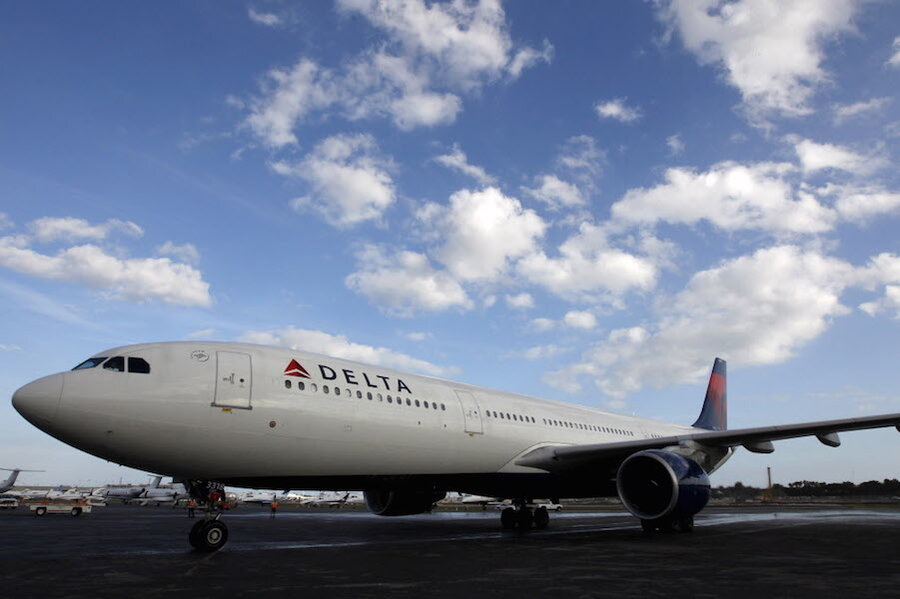Delta, other airlines lose a big bet on fuel prices
Loading...
Delta’s bet on fuel hasn’t paid off, according to the airliner's latest earnings report.
Delta Air Lines is facing a $450 million loss from pulling out of pre-set contracts to buy fuel at certain prices, as the cost of fuel ended up being much lower than the company anticipated. Such contracts are meant to protect a company against spikes in fuel costs. The practice, known as "hedging," is common among airlines, but when the price of fuel falls or fails to jump as high as expected, trade losses on fuel hedges can cancel the benefits of cheaper fuel.
Hedging fuel prices became commonplace in the airline industry after Southwest Airlines found success with the strategy in 2008, making $1.3 billion on hedges as oil prices surged. Chris Monroe, vice president and treasurer of Southwest, recently told the Wall Street Journal that the company sees value in hedging even though it hasn’t seen direct gains from the practice in recent years.
“It’s like having a teenage-boy driver living right in the middle of your income statement,” he said. “You need some insurance on him.”
Hedging is particularly common among Asian and European airlines because fuel is bought using US currency, but flights are sold in other, often weaker, currencies. However, after many European airlines sustained huge losses last year from hedging, companies are looking to cut back on the practice.
Oil prices are near historic lows. In 2008, oil peaked at $147 a barrel; in February of this year, it was $26 per barrel. In March, oil was $41 per barrel, almost 60 percent lower than prices seen in mid-2014.
Additionally, because of more fuel-efficient aircrafts, and recent mega-mergers within the industry, there may be less of a need for hedging fuel prices even as they fluctuate.
“We don’t need to hedge that risk like we used to," Gerry Laderman, the acting chief financial officer of United Continental, told the Wall Street Journal. "That doesn’t mean that hedging is off the table. We are looking at formulating…a different way of thinking about it.”
Delta isn’t the only airline to lose out on fuel hedging. Last year, United Continental lost $604 million from the practice. Southwest lost $254 million. The only airline that hasn't hedged on fuel in recent years is American Airlines, the US airline with the most traffic out of the big four airlines.
In 2016, United Continental shares have dipped 29 percent, and Delta has seen share prices drop 28 percent. For Delta, revenue per mile, or revenue for each seat flown one mile, dropped five percent in the second quarter of this year, more than the expected decline of 2.5-4.5 percent.
Airlines are facing other headwinds besides fuel costs. Fare prices have decreased in the past year due to the combination of low oil prices and a greater supply of flights than there is demand for flights. Fears of terrorism and uncertainty regarding Brexit have also hurt the airline industry in recent months.
Even with lower fare prices and a loss from hedging fuel prices, Delta will still save money from pulling out of fuel contracts. Though oil prices have increased since February 2016, they are still 20 percent lower than last year.






